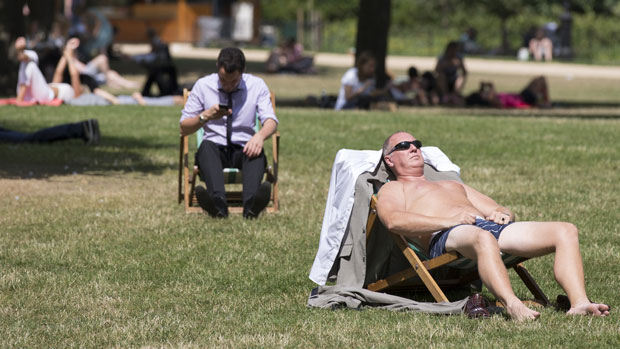Met Office says UK's hottest years have all been since 2002
Experts say climate change means hot years are ‘the new normal’

A free daily email with the biggest news stories of the day – and the best features from TheWeek.com
You are now subscribed
Your newsletter sign-up was successful
The UK’s 10 hottest years on record have all occurred since 2002, the Met Office has announced.
In news that The Guardian describes as “worrying” and a “further indication of how the climate is heating up” the records also show that none of the UK’s 10 coldest years have occurred since 1963.
In a report for the International Journal of Climatology, the Met Office examined its temperature records for Britain back to 1884.
The Week
Escape your echo chamber. Get the facts behind the news, plus analysis from multiple perspectives.

Sign up for The Week's Free Newsletters
From our morning news briefing to a weekly Good News Newsletter, get the best of The Week delivered directly to your inbox.
From our morning news briefing to a weekly Good News Newsletter, get the best of The Week delivered directly to your inbox.
Analysing the data, it found that the warmest year on record in Britain was 2014; followed by 2006, 2011, 2007, 2017, 2003, 2018, 2004, 2002, and 2005. Over the past 10 years, summers have been 13% wetter and winters have been 12% wetter than in the period 1961-1990.
In 2015 and 2018, the average sea level around Britain was at the highest since records began in 1901.
Mark McCarthy, the head of the Met Office’s National Climate Information Center, said: “Looking back further into the UK’s weather reveals a very interesting timeline with the top ten warmest years at the most recent end, since 2002.”
Dr Michael Byrne from the University of St Andrews told Reuters that hot years are “the new normal”. He added: “Not only is the UK getting warmer, but also wetter, with 13% more summer rain compared to last century.
A free daily email with the biggest news stories of the day – and the best features from TheWeek.com
“With global emissions of greenhouse gases on the rise, the UK will continue to get warmer and wetter as global warming accelerates.”
Meanwhile, speaking to the Daily Telegraph, Dr Katherine Kramer, global climate lead at Christian Aid, said the findings were just the “latest alarm bell to go off as we fail to grapple with this growing climate emergency”.